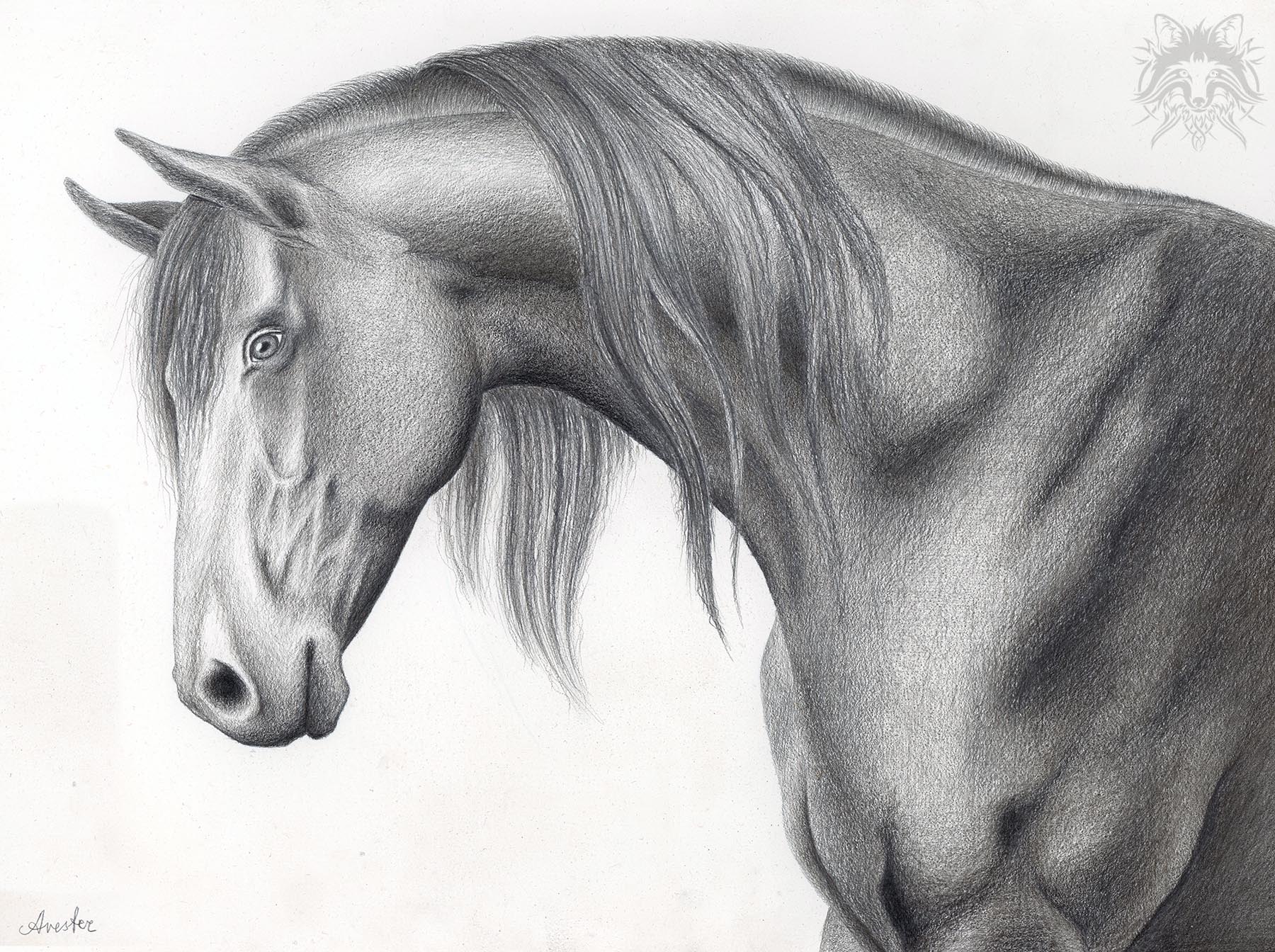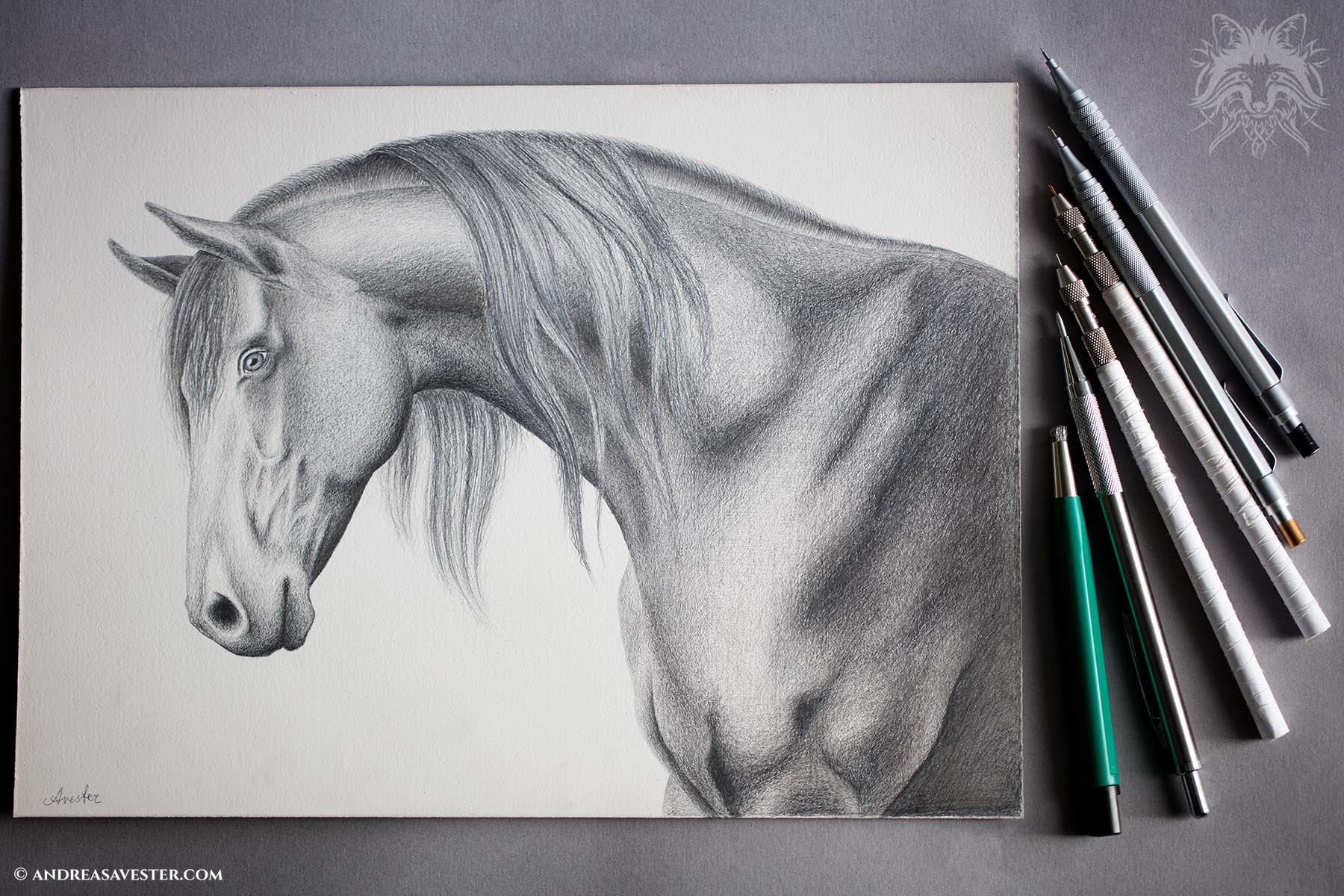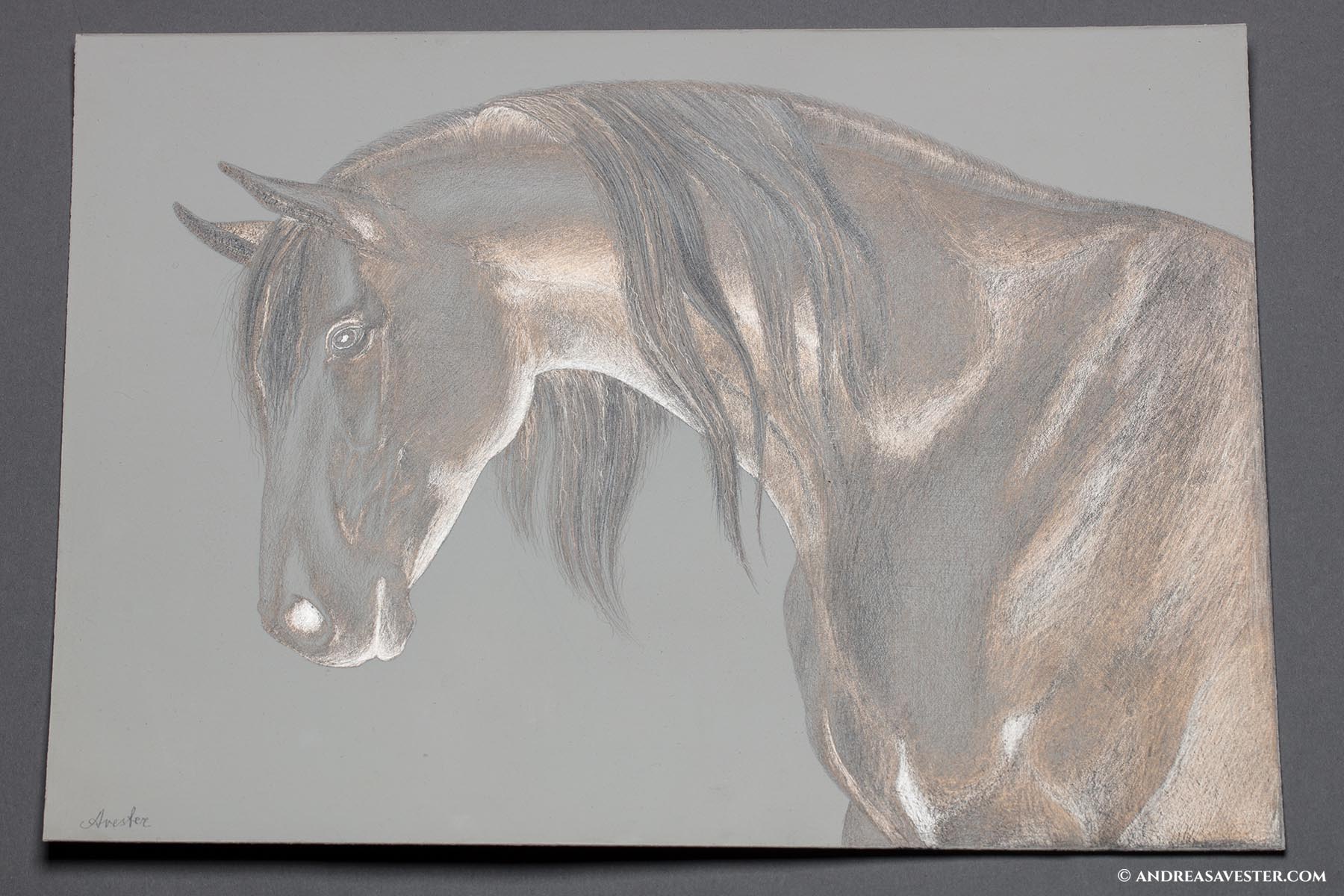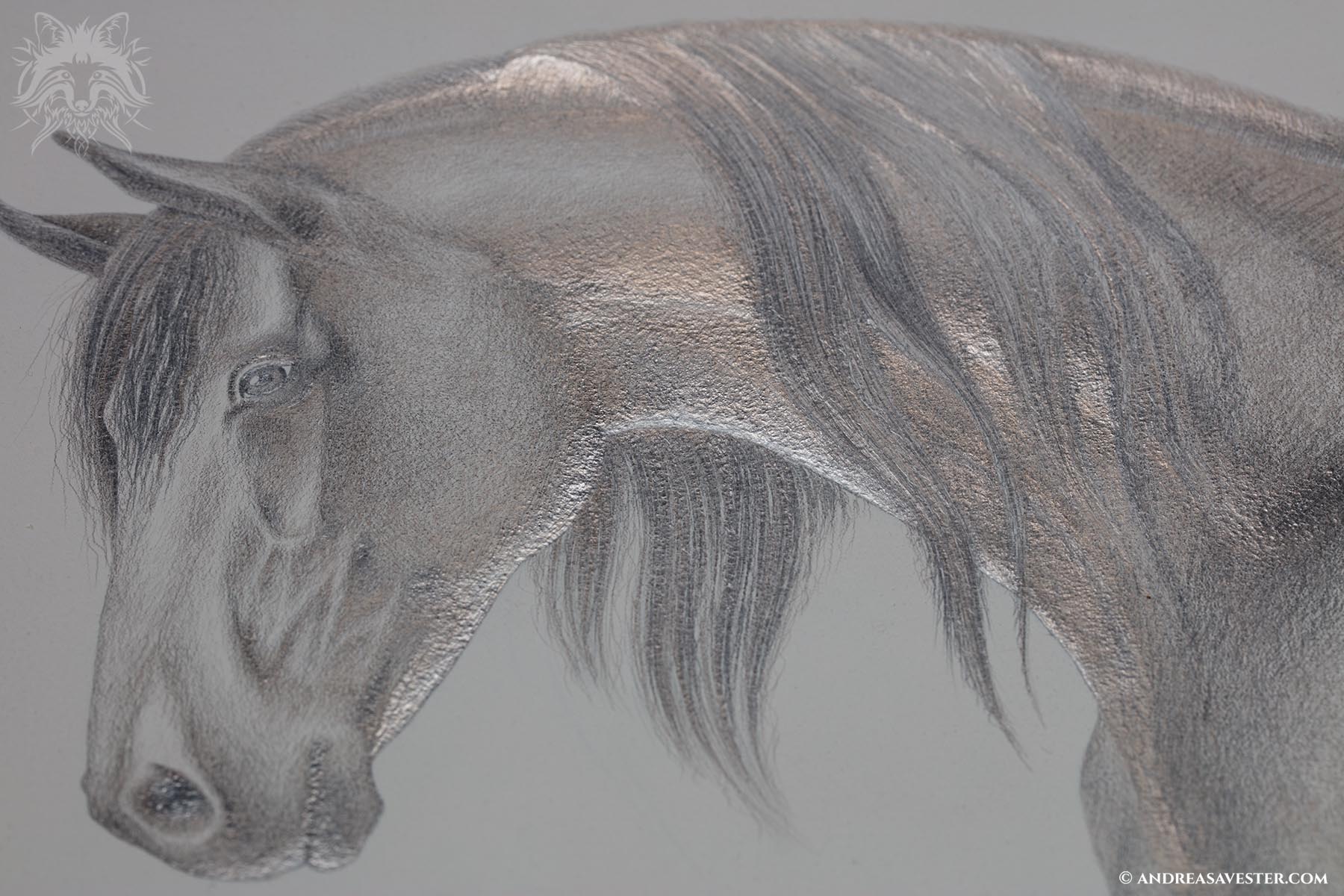Here is my latest artwork. This is something I have been working on lately. This is a metalpoint drawing featuring a horse head. Image size is 30 x 22 cm. This image is drawn with 24 karat gold, palladium, and aluminum on a specially prepared surface.
A metalpoint drawing is made by dragging a piece of metal (usually a wire) across a surface prepared with an abrasive ground. As the metal is drawn along the surface, tiny particles of metal are left behind, creating a mark.
Original drawing is available for sale. The price is €600. Contact me if you are interested in purchasing it. Shipping is possible to anywhere in the world.

A metalpoint drawing featuring a horse head.
Here is a photo in which the drawing is placed next to the tools I used for making it. From top to bottom: a mechanical pencil with 0.5mm aluminum wire inserted in it; a mechanical pencil with 0.5mm gold wire, a stylus with 1.0mm gold wire, a stylus with 1.0mm palladium wire; a mechanical pencil with 2.0mm aluminum wire; a wire brush with aluminum wires.

When you look at a metalpoint drawing perpendicularly, it looks grey. However, when you look at it with light falling at an angle, it appears shiny.

This drawing was made on a sheet of hot pressed watercolor paper with a bit of texture. In the following image you can notice how metal particles interact with a slightly textured drawing surface.

When reading about metalpoint drawings, you may also encounter words like “silverpoint” or “goldpoint.” These words are used, when a drawing is made with silver or gold, respectively. Since I make my drawings with various different metals, I use the word “metalpoint.”
Here you can see more of my metalpoint drawings.
Here you can find my tutorials in which I explain how my metalpoint drawings are made.
I also take commissions for custom metalpoint drawings, in case anybody is interested.

It is beautiful and interesting how it changes appearance based on the angle light falls on it, turning it almost into a negative.
Do you have experience with how it changes with age? Gold and palladium should not corrode (well, at least gold should not, if it is pure), but alluminium turns white in the air with time, especially if humidity fluctuates and if the surface is porous – which, in this case, it certainly is.
Charly @#1
Here https://andreasavester.com/silverpoint-art-beyond-silver-what-other-metals-artists-can-use-for-their-metalpoint-drawings/ I wrote a very long description of how various metals tarnish in a metalpoint drawing. And I haven’t noticed aluminum changing in any way.
Thank you for that link, it was very informative reading. I had a slight feeling of deja-vu, I think I have read it already last year and forgot about it.
Alluminium is very reactive, maybe that is why there is no noticeable tarnishing after a year – the surface might “tarnish” immediately after the drawing.
Have you tested the influence of colorless fixatives (like shellac) on the tarnishing process?
OK OK I’ll try to make your bismuth pencil. 🙂
It’s amazing. I have absolutely no talent for drawing* and I am always stunned at what people can create.
*Yes, I know, a lot of it is craft, but some of it is talent and I am not particularly keen on spending time on learning something where 200 hours would get me to where others start. my kid is an artist and at the age of 8 she was already much better than I’ll ever be. I can turn things into 3 D fabric objects, which is funny if you think about it
Charly @#3
That’s possible. I have published various metalpoint art tutorials over the past year, and I have shared the links in the comment section of Marcus’ blog.
I have tried an aerosol varnish/fixative. This one.
https://www.cowlingandwilcox.com/354-thickbox_default/professional-fixative-aerosol.jpg
Silver tarnished a lot and very quickly, I no longer remember what happened with other metals.
Marcus @#4
Thanks a lot!
Though I meant it seriously—if you feel stressed due to having too much on your “to do” list, then you don’t have to make stuff for me.
Giliell @#5
I am fine with using the word “talent” if it refers to special characteristics that allow some people to learn certain skill faster and better than their pears. When it comes to drawing, such characteristics could be patience, good hand-eye coordination, the ability to do things accurately, etc. But making artworks still is a learned skill. Artists spend countless hours in order to learn how to make something nice looking.
Oh, absolutely. I’ve got a bunch of hobbies and I know the learning curves. But like most people I tend to stick to those where my learning curve doesn’t look suspiciously like the Netherlands…
The kid is into drawing comics/manga style. When you watch her drawing, you see that for her the finished image already exists on paper, so to speak. When I draw something I have to start at some central point from which I can develop proportions and such, say I start with the head and then do the shoulders and carefully try to get the angles and such right. She starts somewhere at the wrist, keeps going in a single line until she reaches the hips on the opposite site, continues with drawing the hair and ends up with a character that’s got proportions, movement, perspective and emotions. I end up with Frankenstein’s Creature.
I am thoroughly impressed.
Very impressive!